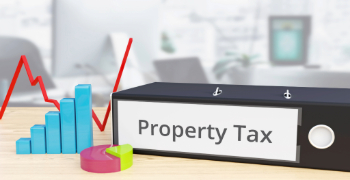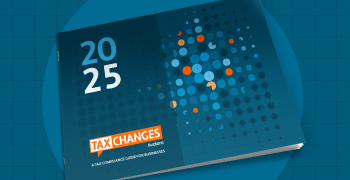Consumer Use Tax Defined - Will's Whiteboard
What is the difference between sales tax and consumer use tax? Many businesses that understand sales tax get caught making consumer use tax errors. Watch the video to learn how consumer use tax works, including common scenarios where you might incur a use tax obligation.
Transcript
Hi, welcome to Will’s whiteboard, I’m Will. Today we’re going to be talking about consumer use tax. See, many businesses are familiar with the concept of sales tax, but fewer truly understand what consumer use tax is, and this is important. For example, the state of California found that consumer use tax errors are among the top errors they find when they audit businesses for sales and use tax. Let’s take a look at how this works.
Okay, all taxable transactions involve three parties. You have a seller, you have a buyer, and then you have the government. And because it’s a taxable transaction, the government receives tax. Let’s see how this works. A seller, will sell something to a buyer, a good or a service. The buyer, in exchange, will give that seller money, and then when sales tax is collected the seller will remit that sales tax, collect it, and remit it to the appropriate government authority. But there are some transactions where the seller doesn’t collect sales tax. And if those transactions are taxable then it’s up to the buyer to take the correct amount of tax and to remit it to the appropriate taxing authority.
When the seller collects and remits, it’s called sales tax. On the other hand, when the buyer, or the user, collects and remits, it’s called use tax, or consumer use tax. Let’s take a look at a couple of scenarios where a buyer might owe consumer use tax. Scenario number 1: There’s an out-of-state seller who doesn’t have an obligation to collect sales tax in the jurisdiction where the buyer is located, but the buyer makes a purchase that is taxable. In that situation, most often consumer use tax is owed to the taxing authorities. Now, just as an aside here, this is partly what federal legislation like the Marketplace Fairness Act is about–that some out-of-state sellers can sell across borders without collecting sales tax. But, even though use tax is due, not everyone pays it to the state. Think about this on a consumer level. How often do you buy things on the internet that don’t have sales tax associated with them. How often do you pay consumer use tax? Probably not that often, if you follow the data. So, it’s for these reasons that we have things like Amazon tax laws at a state level, and again at the federal level things like the Marketplace Fairness Act.
Let’s get back to this consumer use tax scenario on a business level. Another scenario where you might owe consumer use tax is if you purchase something and put it in your inventory for resale, and at the time when you purchased you didn’t pay sales tax, then you might bring it out of your resale inventory and use it, essentially becoming your own consumer or your own customer. In that case, if it’s taxable, consumer use tax is again owed to the state taxing authorities. I hope this helps explain consumer use tax and I’ll talk to you next time.

Your competitors live by this annual report
Trusted by professionals, this valuable resource simplifies complex topics with clarity and insight.
Stay up to date
Sign up for our free newsletter and stay up to date with the latest tax news.












